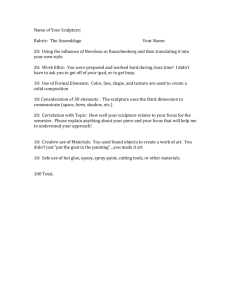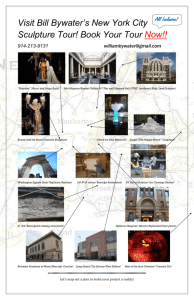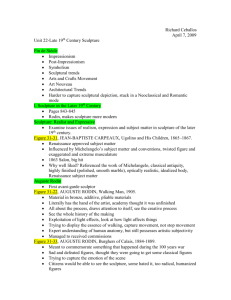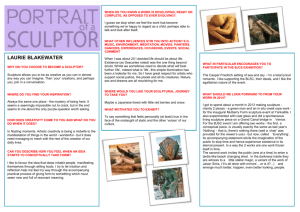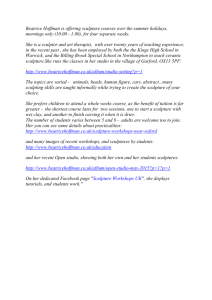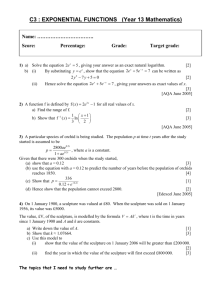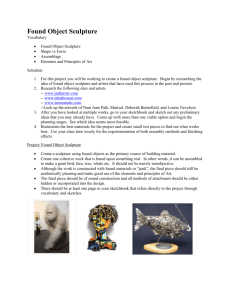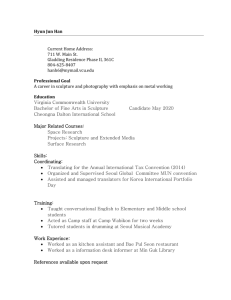Comparison and Contrast Writing
advertisement
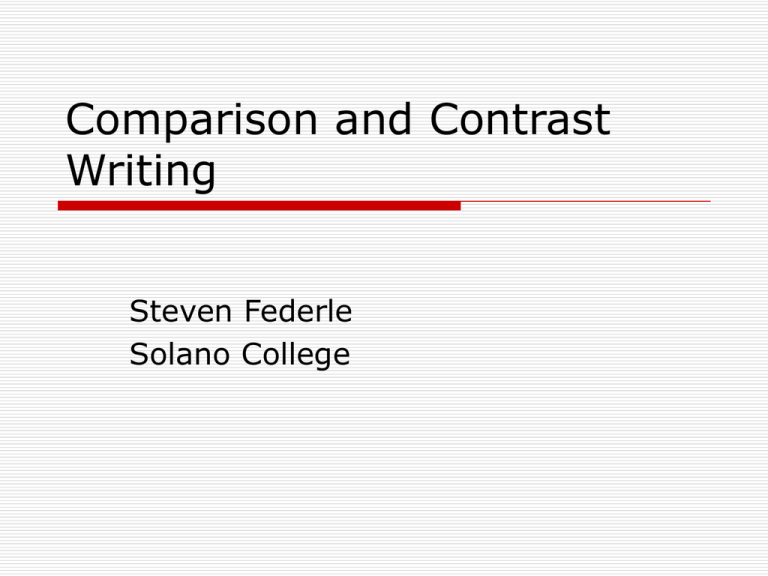
Comparison and Contrast Writing Steven Federle Solano College What is comparison and contrast? Comparison shows how two or more things are similar Contrast shows how two or more things are different In most writing situations, the two related processes are used together An analogy explains one thing by comparing it to a second, more familiar, thing. Establishing a basis for comparison The two things to be compared must have enough in common to justify the comparison. In making comparisons, you should move beyond the obvious (i.e., people and bees) When two things are very similar, it is the contrasts that may be worth writing about. Searching points for discussion Determine your emphasis on similarities, differences, or both. Determine the major focus of your paper. Make sure you treat the same or similar elements for each subject you will discuss: Novel A Novel B Major characters Major characters Minor characters Minor characters themes themes Novel A Do not discuss entirely different elements for each subject. Novel B Major Plot Characters Minor Author’s Characters Life Themes symbolism Formulating a Thesis Statement Identify not only the subjects to be compared and contrasted in your essay, but the point you will make about them. Also indicate whether you will focus on similarities or differences, or balance the two. “Although Melville’s Moby-Dick and London’s The Sea Wolf are both about the sea, the minor characters, major characters, and themes of Moby-Dick establish its greater complexity.” Structuring a Comparison and Contrast Essay Subject by Subject Write a separate essay about each subject, but you discuss the same points for both subjects. Use basis for comparison to guide your selection of points. Arrange points in logical order, usually order of importance. Good for short, uncomplicated papers. Point by Point Comparison Good for longer, more complex papers Make a point about one subject, and then follow it with a comparable point about the other subject. Alternating pattern Be careful not to fall into a monotonous, back and forth movement between points. To avoid this problem, vary sentence structure as you move from point to point. Using Transitions See list on page 43. See transitions especially useful for comparison and contrasts on page 369. Longer essays may have transitional paragraphs that connect one part of the essay to another. REVISING: See checklist on page 369 Student Example: Comparison and Contrast Essay WRITING EXERCISE: LOVE! Auguste Rodin, The Kiss (Sculpture) Robert Indiana, LOVE (Sculpture) What significant characteristics do these two sculptures share? Do they share enough characteristics to establish a basis for comparison? Explain. Auguste Rodin, The Kiss (Sculpture) Robert Indiana, LOVE (Sculpture) In your journal, create a venn diagram to list the similarities and differences of these two works of art. Auguste Rodin, The Kiss (Sculpture) Robert Indiana, LOVE (Sculpture) What general statement could you make about these two sculptures? Do the points you listed on your venn diagram provide enough support for this general statement? Auguste Rodin, The Kiss (Sculpture) Robert Indiana, LOVE (Sculpture) Write a short comparison-contrast essay in your journal on the following: How does each sculpture convey the idea of love? Which one do you believe conveys this idea more effectively? Why? Grammar: parallelism Parallelism is the use of matching nouns, verbs, phrases, or clauses to express the same or similar ideas. “It was the best of times; it was the worst of times.” Charles Dickens, Tale of Two Cities. Click here to visit Purdue University website on parallelism.
